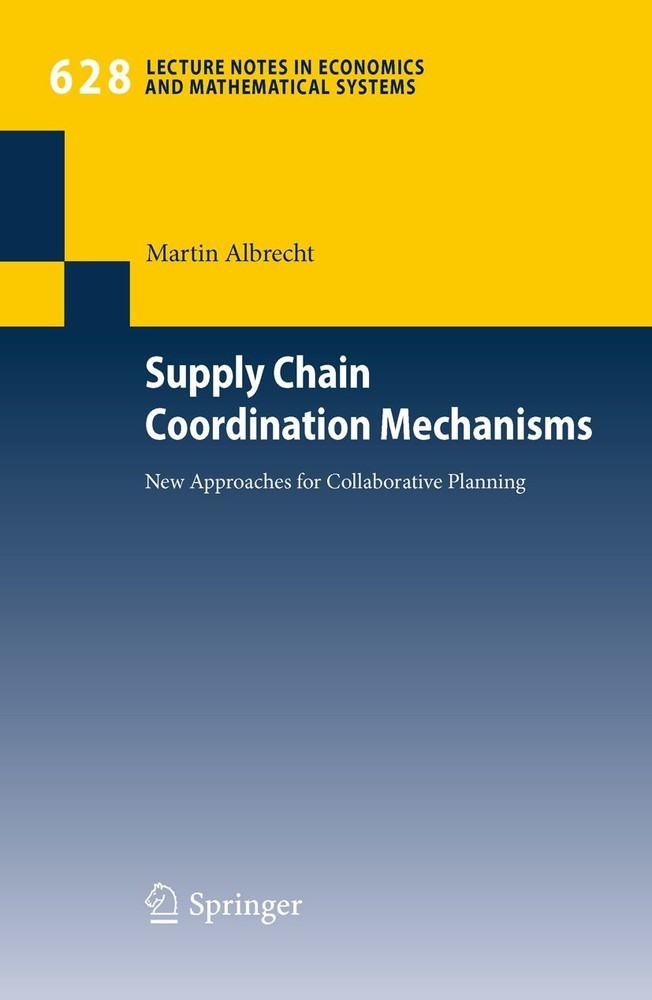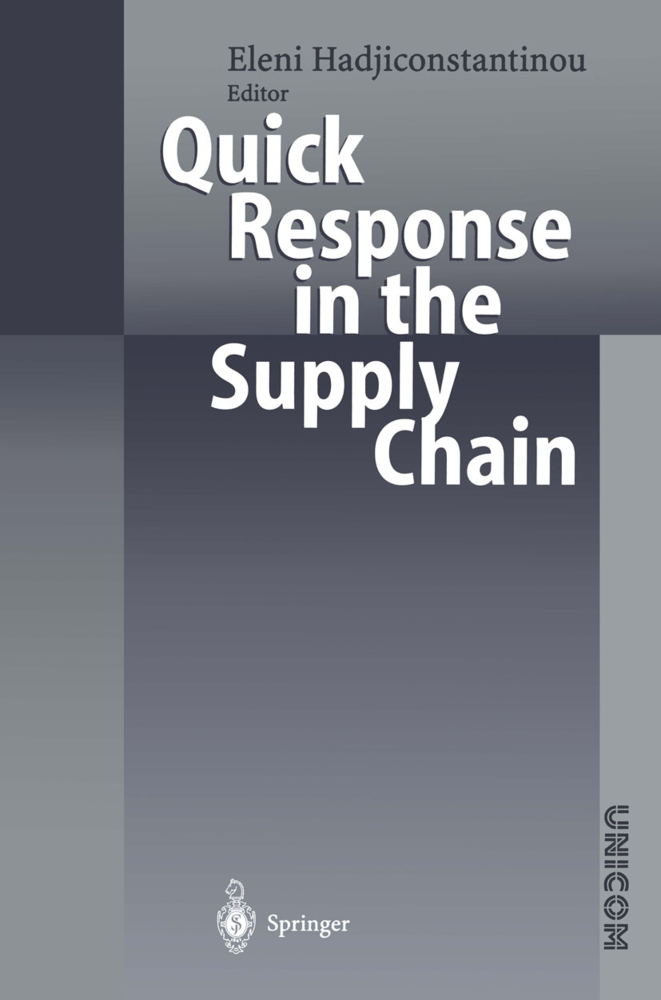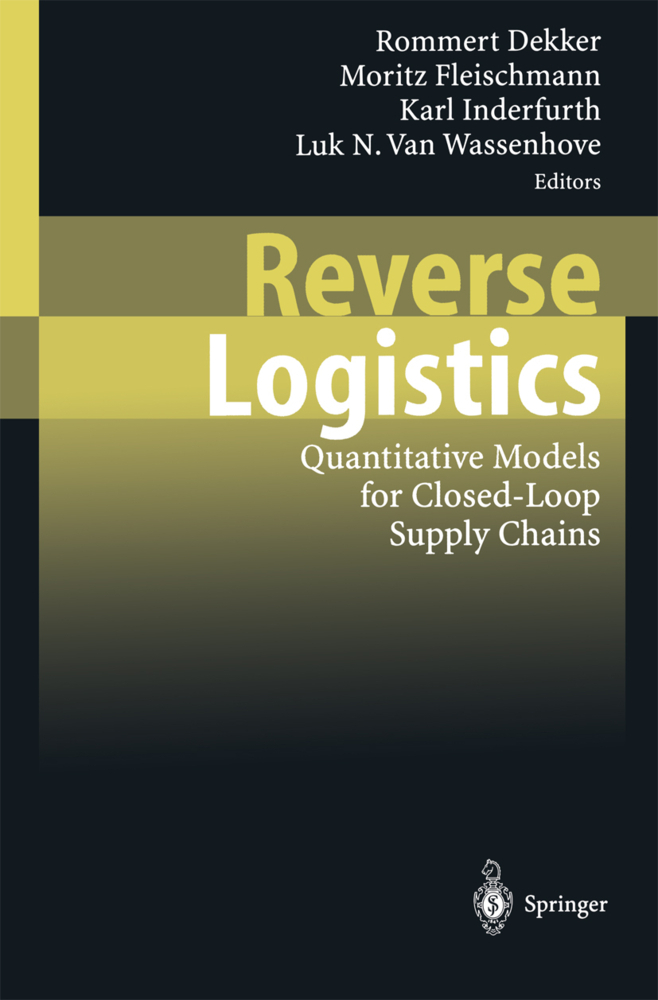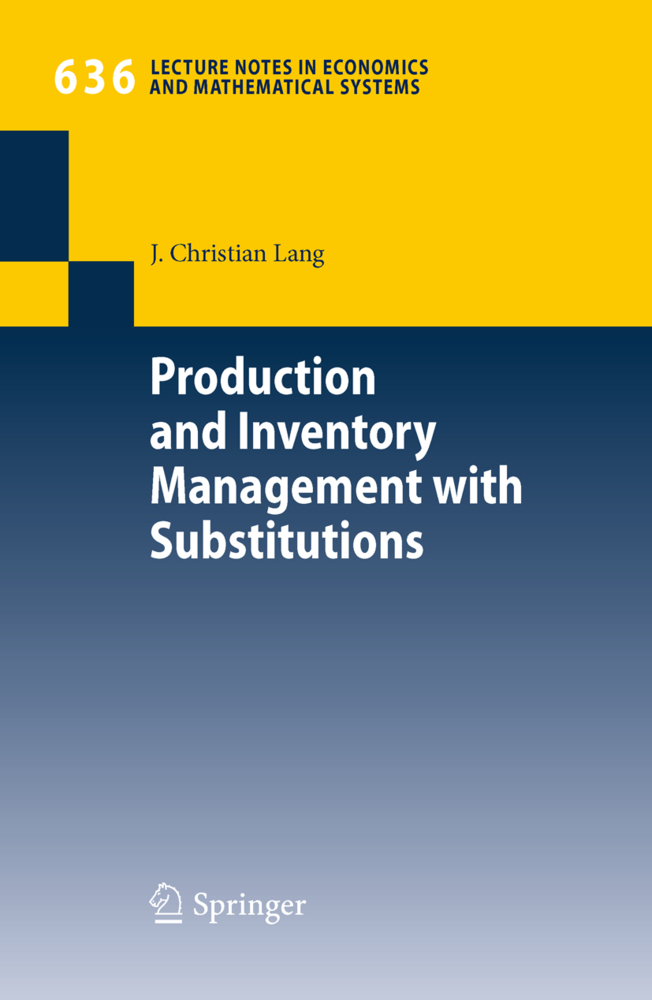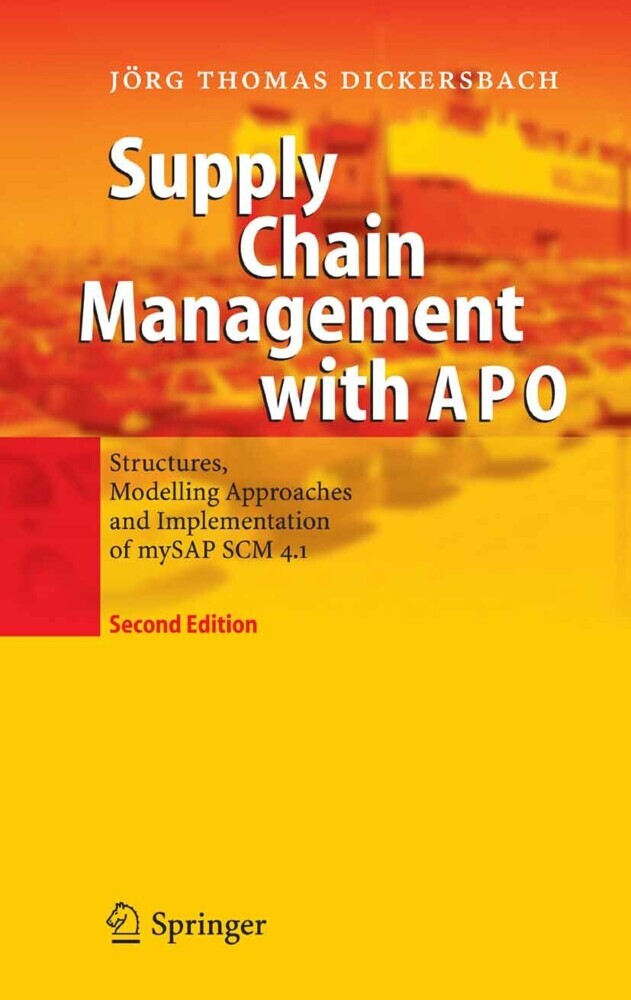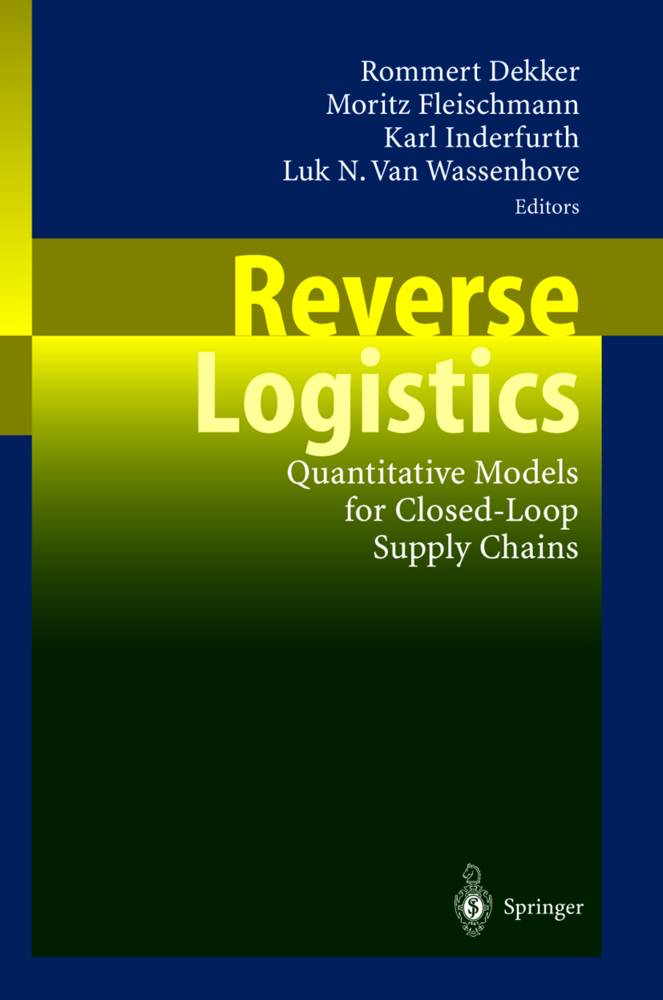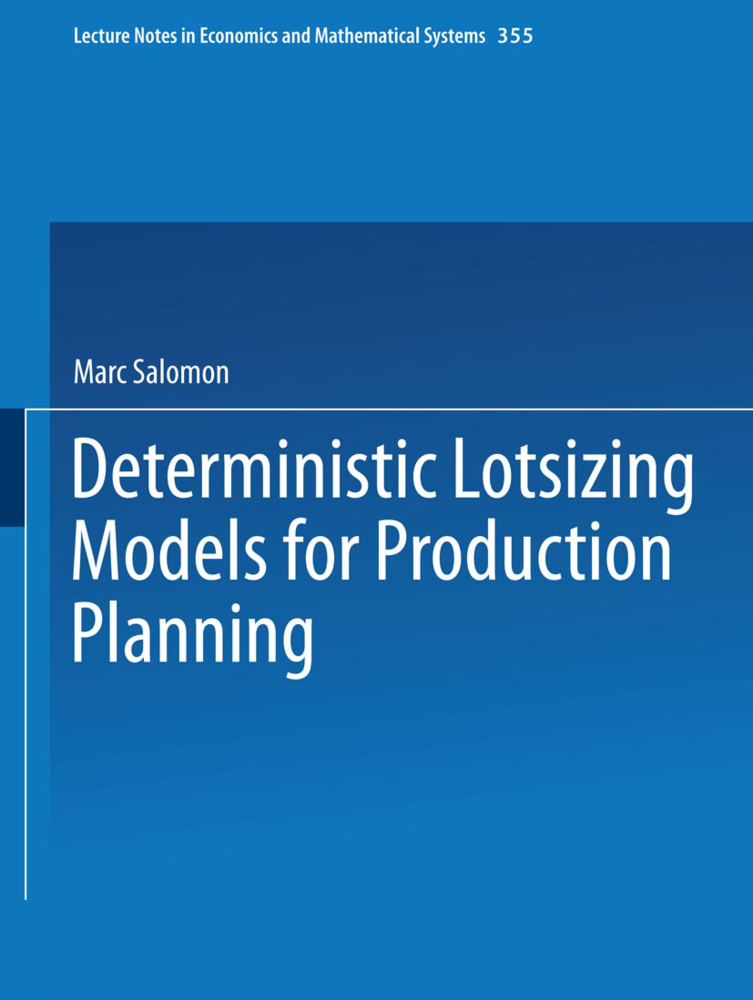Supply Chain Coordination Mechanisms
New Approaches for Collaborative Planning
Integrated supply chain planning is well understood by theory and widely applied in practice however, only with respect to intra-organisational supply chains. In inter-organisational supply chains, an additional, yet unresolved problem arises: due to confidentiality reasons, decentralized parties keep their local data private, which prevents an integrated planning. Local planning procedures such as upstream planning, which are usually applied then, result in suboptimal solutions for the supply chain as a whole.
1;Supply ChainCoordination Mechanisms;2 1.1;1 Introduction;20 1.1.1;1.1 Motivation and Goals of This Work;20 1.1.2;1.2 Methodology;21 1.1.3;1.3 Outline;21 1.2;2 Supply Chain Planning and Coordination;23 1.2.1;2.1 Supply Chain Planning;23 1.2.1.1;2.1.1 Definitions and Overview;23 1.2.1.2;2.1.2 Master Planning;26 1.2.2;2.2 Model Formulations for Master Planning;27 1.2.2.1;2.2.1 Generic Master Planning Model;28 1.2.2.2;2.2.2 Extension to Lot-Sizing;30 1.2.2.2.1;2.2.2.1 Basic Models;30 1.2.2.2.2;2.2.2.2 Extension to Campaign Planning;32 1.2.3;2.3 Decentralized Planning and Coordination;38 1.2.3.1;2.3.1 Basic Definitions;38 1.2.3.2;2.3.2 Decentralized Supply Chain Planning;42 1.2.3.2.1;2.3.2.1 Models for Decentralized Planning;42 1.2.3.2.2;2.3.2.2 Drivers for Suboptimality of Decentralized Planning;44 1.2.3.3;2.3.3 Upstream Vs. Collaborative Planning;48 1.3;3 Coordination Mechanisms for Supply Chain Planning;53 1.3.1;3.1 Symmetric Information;53 1.3.1.1;3.1.1 Non-cooperative Game Theory;54 1.3.1.1.1;3.1.1.1 Coordination on Quantities and Time;55 1.3.1.1.2;3.1.1.2 Coordination of Lot Cycles;58 1.3.1.2;3.1.2 Cooperative Game Theory;59 1.3.2;3.2 One-Sided Information Asymmetry;61 1.3.2.1;3.2.1 Signaling;61 1.3.2.2;3.2.2 Screening;63 1.3.3;3.3 Multilateral Information Asymmetry;66 1.3.3.1;3.3.1 Auctions and Their Application to Supply Chain Coordination;66 1.3.3.2;3.3.2 Mechanisms with Focus on Proposal Generation;69 1.3.3.2.1;3.3.2.1 Outline of Dual Decomposition;70 1.3.3.2.2;3.3.2.2 Literature;73 1.3.3.2.3;3.3.2.3 Discussion and Conclusions;78 1.4;4 New Coordination Schemes;80 1.4.1;4.1 Generic Scheme for Linear Programming and Analytical Results;81 1.4.1.1;4.1.1 Version with Iterative, Unilateral Exchange of Cost Information;81 1.4.1.2;4.1.2 Version with One-Shot Exchange of Cost Information;97 1.4.2;4.2 Scheme for Uncapacitated Dynamic Lot-Sizing and Analytical Results;99 1.4.3;4.3 Application to Master Planning;116 1.4.3.1;4.3.1 Linearization;116 1.4.3.2;4.3.2 Adaptation to Master Planning;120 1.4.3.3;4.3.3 Generic Modifications;128 1.4.3.4;4.3.4 Modifications for Master Planning;131 1.4.4;4.4 Customizations;137 1.4.4.1;4.4.1 Master Planning with Lot-Sizing;137 1.4.4.2;4.4.2 Voluntary Compliance;139 1.4.4.3;4.4.3 Lost Sales;140 1.4.4.4;4.4.4 Multiple Suppliers;143 1.5;5 New Coordination Mechanisms;145 1.5.1;5.1 Surplus Sharing Determined by the Informed Party;146 1.5.2;5.2 Surplus Sharing Determined by Lump-Sum Payments;149 1.5.3;5.3 Surplus Sharing by a Double Auction;157 1.5.4;5.4 Comparison of Mechanisms and Discussion;165 1.5.5;5.5 Application with Rolling Schedules;167 1.6;6 Computational Tests of Coordination Schemes;171 1.6.1;6.1 General Master Planning Model;171 1.6.1.1;6.1.1 Generation of Test Instances and Performance Indicators;171 1.6.1.2;6.1.2 Analysis of Solutions for the Generic Scheme;178 1.6.1.3;6.1.3 Analysis of Solutions for the Modified Scheme;180 1.6.2;6.2 Uncapacitated Lot-Sizing Problem;185 1.6.2.1;6.2.1 Generation of Test Instances;185 1.6.2.2;6.2.2 Analysis of Solutions;187 1.6.3;6.3 Multi-level Capacitated Lot-Sizing Problem;190 1.6.4;6.4 Models for Campaign Planning;195 1.6.4.1;6.4.1 Generation of Test Instances;195 1.6.4.2;6.4.2 Analysis of Solutions;196 1.6.5;6.5 Real-World Supply Chain Planning Problems;200 1.6.5.1;6.5.1 Planning Problems and Model Formulation;201 1.6.5.2;6.5.2 Analysis of Solutions;208 1.7;7 Summary and Outlook;213 1.8;References;216
Albrecht, Martin
| ISBN | 9783642028335 |
|---|---|
| Artikelnummer | 9783642028335 |
| Medientyp | E-Book - PDF |
| Auflage | 2. Aufl. |
| Copyrightjahr | 2009 |
| Verlag | Springer-Verlag |
| Umfang | 211 Seiten |
| Sprache | Englisch |
| Kopierschutz | Digitales Wasserzeichen |

